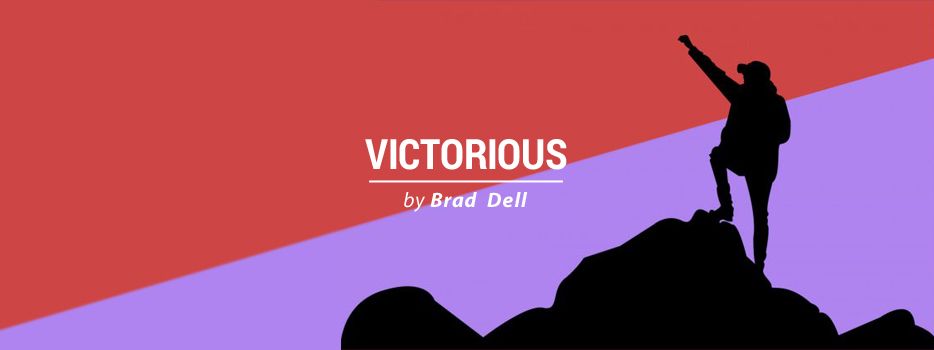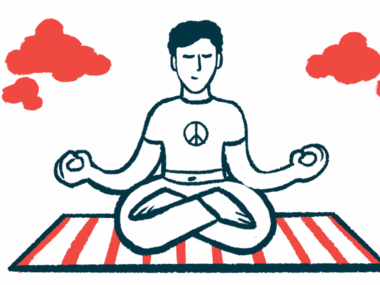Have Our Backs and Push Against Ableism With Us
Written by |

In 2013, miles above the Pacific, flight attendants and passengers stared silently as a man yelled — literally yelled — at me for coughing too much. In meltdown mode, he didn’t care for my explanations that I have a noncontagious lung disease, nor that cough suppressants make me sick. For an eternity he screamed that my cough drove him insane, that I shouldn’t be allowed on planes. No one stood up for me.
I held my breath for most of the flight. For five hours, I sat shoulder to shoulder with the man who shamed me. Because I couldn’t clear my airways with coughs, I developed pneumonia.
Before then, I thought ableism was malarkey. Every person would be sensitive to the disability or disorder needs of others, right? Wrong.
I’m not as affected today because I have a lung transplant and cochlear implants to help me hear, but ableism was inescapable when I became deaf and started needing supplemental oxygen. For a while, I feared leaving home, and when I did, I hid in my parents’ shadow. People scared me so much that I developed social anxiety.
In my weakest season, people rolled their eyes if I inconvenienced them, told Mom I shouldn’t be allowed out on my own (at 22 years old), scolded me if I was anything but inspiration porn, flipped me off if I got in their way, and iced me out if I asked them to stop making jokes about me dying. In school, I had grade points deducted because I was too deaf to participate in class discussions, and simple accommodation requests were considered by some to be ridiculous or “unfair to other students.”
In that same season, someone shamed me for taking a seat on a full bus while I was so sick that I could barely stand. Humiliated, I stood. I got off the bus, and nearly fainted. Perhaps that person didn’t know that an estimated 10% of people in the U.S. have an invisible disability.
But that excuse isn’t always valid. In a waiting room, I asked a lab tech, “Can you fetch me instead of calling my name? I’m deaf.” I sat an hour in a mostly empty room before asking the tech when my turn would be. She wrote (as in, communicated) that she called my name long ago, and “I don’t have the time to learn how to communicate with a deaf person.”
Our society dehumanizes PwD to justify its intolerance for inconvenience. Systemic injustices teach PwD to stay out of society’s way: Many are discouraged from chasing dreams, equity, independence.
We are also discouraged from working. In 2015, 68.4% of PwD in the U.S. said they’re striving to work, but only 19.3% held jobs last year compared to a 66.3% employment-population ratio for those without disabilities. The U.S. Equal Employment Opportunity Commission reported 24,238 charges of disability discrimination filed in 2019.
Even if we nab a steady job, many are held hostage to a system that normalizes financially “punishing” people for being born with “bad genes” and imperfect bodies, or for being hurt later in life.
For many, New Year’s Eve is a countdown to maxing out renewed healthcare deductibles within weeks, perhaps while still reeling from last year’s medical debt. Amid that, many exhausted patients and caregivers must constantly argue with insurance companies that pull every stop to deny coverages. (Some have wondered why we don’t simply emigrate to countries with different healthcare systems. It’s not that easy if you’re deemed a burden for a nation’s healthcare system!)
Many live at the mercy of medical companies’ pricing, or must decide if pursuing their dream job is worth losing government benefits that cover personal care aide work hours. Often, that assistance may be used only by those below the poverty line, even though an aide costs tens of thousands of dollars annually.
The likelihood of low pay doesn’t exactly solve that dilemma. PwD earned a median of $23,848 in 2018, while those without a disability earned a median of $36,034. Have you ever heard of the subminimum wage? Few people know a person with a disability can legally be paid less than the minimum wage.
Many of us are also kept from investing in our future: I’m grateful for the idea of Social Security Disability Insurance (SSDI), but I was shocked when I found out I’d need to empty my life savings to below $2,000 just to qualify for it, then keep my savings account low throughout the course of receiving SSDI.
We’re told to stick below the poverty line, to toe the party line with mock gratitude for lukewarm government assistance that denies a person’s dignity.
Often, PwD are forced to remain dependent, remain stuck. We’re told financial burdens are an unfortunate side effect of having a disorder, but perhaps they’re instead the symptom of a societal disease. Other symptoms? Inaccessibility, pharmaceutical costs, unethical medical practices, police brutality involving disabilities, airline industry failings, and disrespect of autonomy.
My career is dedicated to uniting and amplifying voices from various rare disease and disabilities communities so we can work together to fight this societal disease, and yes, we pay them for it. Every week, I read about other columnists’ struggles to be treated with respect, yet still ableism is an injustice deemed unworthy of protests, social media campaigns, and front-page headlines. Those ingredients for change include curses bundled with the blessings, but it sure would be something just to know that, finally, the world has turned its eyes to see what has largely gone unseen.
People say we must learn to fight for ourselves when confronted with humiliations and injustices, but we can’t always balance medical bills with legal bills, fighting diseases with fighting people. How about creating a world where we don’t need to sacrifice our funds and health just to be treated decently? Why must we the wounded do all the fighting?
Many of us are sick, anxious, exhausted, and hurting from our disorders, disabilities, and ableism. Please push with us, and when needed, for us.
***
Note: Cystic Fibrosis News Today is strictly a news and information website about the disease. It does not provide medical advice, diagnosis, or treatment. This content is not intended to be a substitute for professional medical advice, diagnosis, or treatment. Always seek the advice of your physician or other qualified health provider with any questions you may have regarding a medical condition. Never disregard professional medical advice or delay in seeking it because of something you have read on this website. The opinions expressed in this column are not those of Cystic Fibrosis News Today, or its parent company, Bionews Services, and are intended to spark discussion about issues pertaining to cystic fibrosis.








KJS
Excellent article. Spot on. Thank you for writing this.
Brad Dell
Thank you, Kris <3
Victor ching
An article only someone who has experience injustice could write. I'm glad I have been able to get to know you over the past three months. I lost my hearing 4 years ago during an illness also. People treat me as if I have dementia, I don't I can't understand what you are saying. There are many forms of hearing loss. Thanks for sharing.
Vic